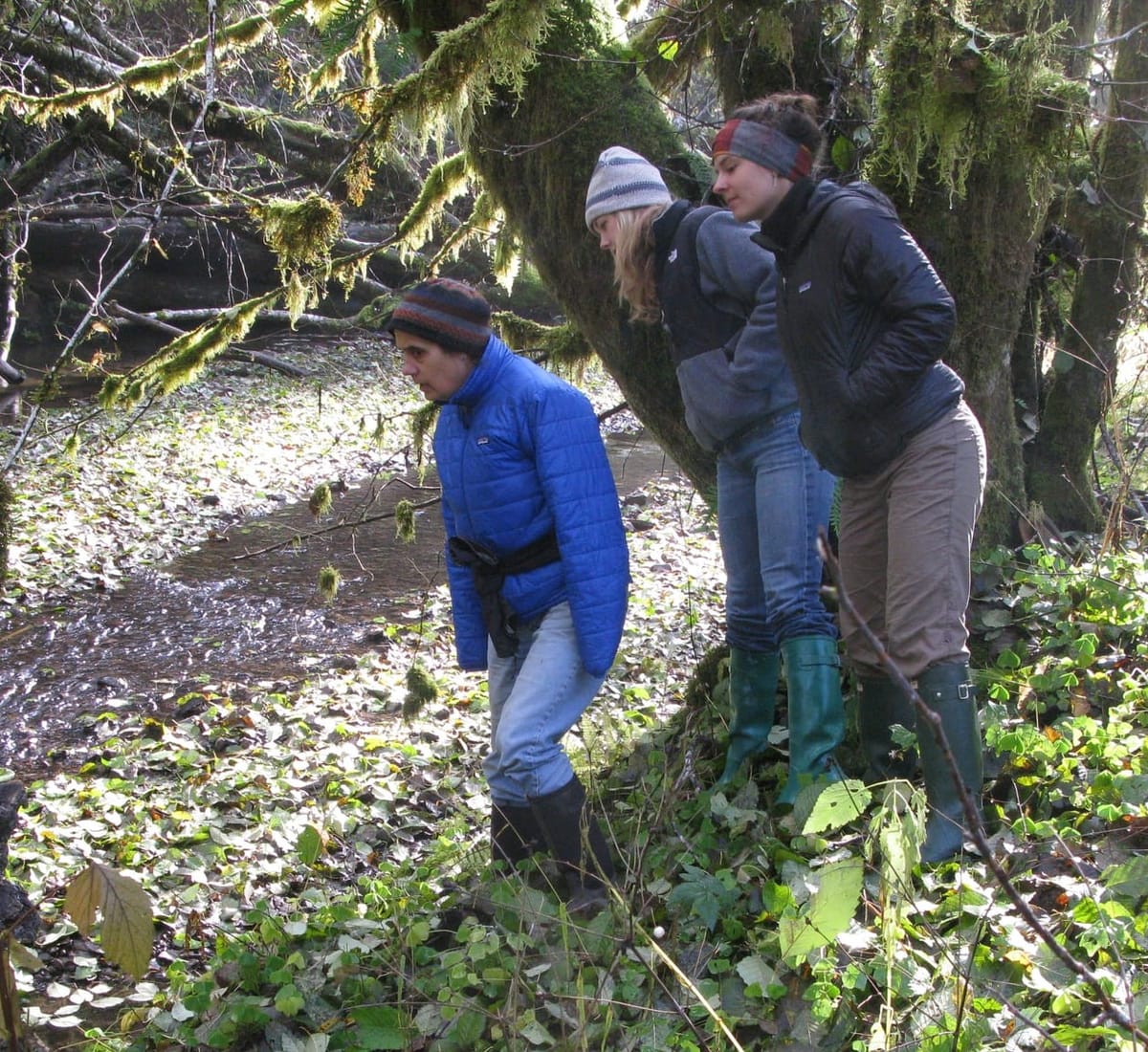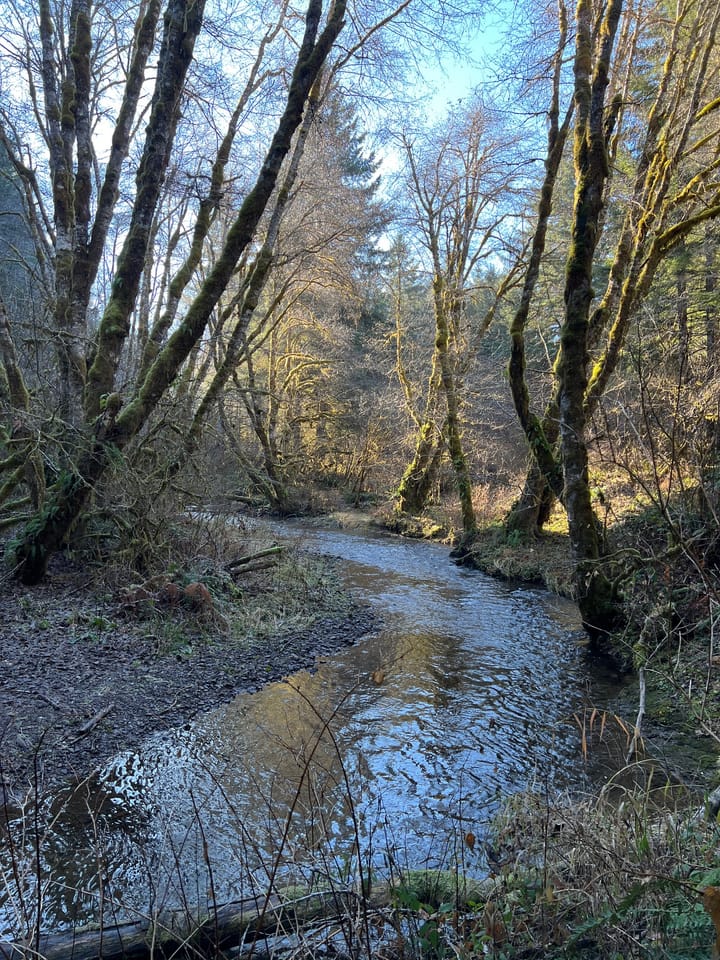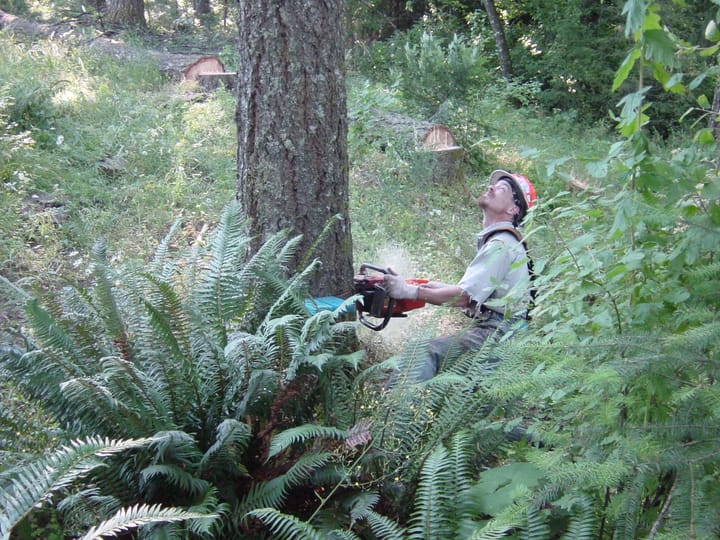Loss of a Neighbor -

The 1998 holiday letter in which I was so honest that I've never been invited to write another one -
In the hush of a gray Fall day, I settle into a worn pew joining others who have stopped and gathered to note the loss and life of a neighbor. On this afternoon, we honor the life of a man who lived a full and rich life. Nine months earlier, I joined with others honor the life of a neighbor who died much too young, trapped in his kayak in an air pocket in the bottom of a Mexican river. With both losses we stopped our busy lives to share appreciation for the value of one life and the web of positive connections that the neighbor’s choices wove.
As my eyes wander over the craftsmanship of the chapel’s exposed fir beams, my mind returns to an experience one week before. ~~ Mist rises into cold, clear morning air from the warm waters of Lake Wenatchee as two canoes are paddled toward the outlet – the source of the Wenatchee River. As the boats silently move over the transparent, still lake water, the mist parts and billows behind like light snow sucked in behind a boxy truck on a wintry road. Flat lake gives way to the first suck of current as a tongue of gentle riffle descends in smooth, patterned waves over granite cobbles. As our canoe reaches the middle of the shallow riffle the smooth surface explodes with the zipping backs of equally surprised Chinook salmon. Backs half out of the clear shallows, they shoot out from ahead of our intruding canoe – large blackish-gray bodies pulse through ice clear shallows in contrast to the bright granite background. Shocked, the bow paddler, my nine year old son, looks back to me in questioning, amazed wonder – how can these fish come back against 500 miles of river, nine dams, and mountainous odds to spawn here this morning? His amazement matches the awe I felt a week earlier as I awkwardly flopped with mask and snorkel into the pool below a Cedar River dam to visit a red swirl of thirty sockeye. They questioningly cruised with hooked, toothy jaws within inches of my face before charging upstream for a leap over the dam. I surfaced from the loud, bubble-filled wonder to calls from my excited and curious children waiting at the dam’s lip – “what did you see?”. The real question was what did I feel – other than cold!?
The weak sun of the clear day burns off the mist obscuring the river ahead as we descend through more salmon filled riffles and rapids separated by clear, deep pools reflecting red leaves preparing to die and fall. Enjoying relief from the positive stress of dodging rocks and ledges as we scratch down a river with too little water to be reasonably paddled, I ask Ben whether he thinks the families of these fish will be returning to spawn in this river when he is my age. Seconds are counted by drips from paddle blade into still water as he considers the question. At last comes the quiet, tentative reply “I hope so”.
I hope so too. But knowing the odds against these fish whose families swam past my childhood home forty years before, under the tugs my father crewed downstream to the sea fifty years before, under the boats carrying my great, great, grandfather down river from the Oregon trail to a new home at the river’s mouth one hundred and fifty years before, and past the villages at the economic hub of Celilo Falls thousands of years before that, I have my doubts. I know that unless we make major changes of course – unless we choose a future available to us but one which few seem ready to choose and create – we will lose another neighbor and friend. My son’s “I hope so” pushes the question on me of how can I raise children in a world where we are making choices that are so wrong, sad, and avoidable without being overwhelmed by a sense of grief over the loss of a neighbor? I can’t.
When the young neighbor died in Mexico, friends from across the country gathered, over snowy upstate New York roads in a packed church for an outpouring of incredulity, grief, and appreciation. If the clock could have been magically turned back and the church filling group transported to the banks for the river under which their friend was trapped, there is no end to what we would have done to save his life – priorities changed, savings drained, sell the farm……. .
The Pacific Salmon are in the same position – trapped in circumstances where life will leave unless neighbors act quickly to save them. But there is a difference in that human neighbors made choices which determined the outcome – a long life and a too short life – and the salmon and the life systems they are part of are in a position where life is leaving because of arrogant, selfish, short-sighted choices that others – you and I – are making. How can I explain to my bow paddler son answering “I hope so” why so few people appear to care – why we’d rightly drop everything to save the human neighbor trapped in the river, yet when it comes to this neighbor in the Wenatchee River riffle ahead whose life we are choosing to snuff out, the band plays on. When distant relative Ed Bullen died in the mid 1800s in Frasier River rapids due to his misjudgments in captaining a steamboat, the British Columbian noted that “although peculiarly exposed to temptation and vice in all of its forms, he passed through all unscathed, maintaining his high moral principles and gentlemanly demeanor to the last”. To date the same cannot be said of our ability to resist the central temptation to take more from the land than it is able to provide - greed. The choice is still available to us and the current salmon turmoil provides us the chance to choose a future based on the sound foundation of living within the limits of what the land – and the neighbors who make up its web of life – can provide.
Heading toward the sleeping bag from an evening beside a fire on the deep canyon banks of the Rogue River, my father asked a telling question – “why are so many of the songs that you sing and write so sad?”. Pushing myself to answer his good question leads me to see that I am trying to make sense of something which in the end makes no sense – why do we continue to pursue our own self wealth in ways that destroy our commonwealth? This reality leaves me filled with sorrow that makes it hard to focus on much else. The sorrow is matched with equal parts of hope and determined commitment.


